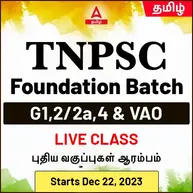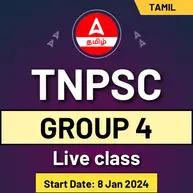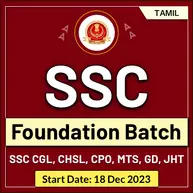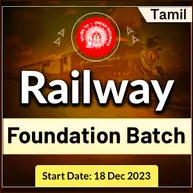இந்தக் கட்டுரையில், TNPSC குரூப் 1, குரூப் 2, குரூப் 2A, குரூப் 4 மாநிலப் போட்டித் தேர்வுகளான TNUSRB, TRB, TET, TNEB போன்றவற்றுக்கான முறைகள் இலவசக் குறிப்புகளைப் பெறுவீர்கள்.தேர்வுக்கு தயாராவோர் இங்குள்ள பாடக்குறிப்புகளை படித்து பயன்பெற வாழ்த்துகிறோம்.
Indian National Congress – Extremism
Introduction
- The period from 1905 was known as the era of extremism in the Indian National movement.
- The extremists or the aggressive nationalists believed that success could be achieved through bold means.
Causes for the rise of Extremism
- The failure of the Moderates to win any notable success other than the expansion of the legislative councils by the Indian Councils Act (1892).
- The famine and plague of 1896-97 which affected the whole country and the suffering of the masses.
- The economic conditions of the people became worse.
- The ill-treatment of Indians in South Africa on the basis of colour of skin.
- The Russo-Japanese war of 1904-05 in which Japan defeated the European power Russia. This encouraged Indians to fight against the European nation, Britain.
- The immediate cause for the rise of extremism was the reactionary rule of Lord Curzon:
-
- 1899- Calcutta Corporation Act, reducing the Indian control of local body.
- 1904- The Universities Act reduced the elected members in the University bodies. It also reduced the autonomy of the universities and made them government departments.
- The Sedition Act and the Official Secrets Act reduced the freedoms of all people.
- His worst measure was the Partition of Bengal (1905).
Objective of Extremists
To attain swaraj or complete independence and not just Self-Government
Methods of the Extremists
-
- Spirit of self reliance and self- determination.
- Not cooperating with the British Government by boycotting government courts, schools and colleges.
- Promotion of Swadeshi and boycott of foreign goods.
- Introduction and promotion of national education.
Important Extremist Leaders
- Lala Lajpat Rai,
- Bal Gangadhar Tilak,
- Bipin Chandra Pal and
- Aurobindo Ghosh.
Lala Lajput Rai
- Popularly known as the Lion of Punjab or Punjab Kesari
- He played an important role in the Swadeshi Movement.
- He founded the Indian Home Rule League in the US in 1916.
- He was deported to Mandalay on the ground of sedition. He received fatal injuries while leading a procession against the Simon Commission.
- Died on November 17,1928.
- Book – Unhappy India
Bal Gangadhar Tilak
- Real founder of the popular anti-British movement in India.
- He was known as ‘Lokamanya’.
- He was called as Father of Indian unrest by Valentine Cerione
- Started two weeklies – The Mahratta (English) and the Kesari(Marathi).
- He was jailed twice by the British for his nationalist activities
- 27 July 1897, Tilak was arrested and charged under Section 124 A of the Indian Penal Code.
- 1908 – Deported to Mandalay for six years.
- 1916 – Set up the Home Rule League at Poona and declared “Swaraj is my birthright and I will have it.”
- Book – Geeta Rahasiya wrote while he was in jail.
Bipan Chandra Pal
- He was a moderate and turned an extremist.
- He played an important role in the Swadeshi Movement.
- He preached nationalism through the nook and corner of Indian by his powerful speeches and writings.
Aurobindo Ghosh
- He actively participated in the Swadeshi Movement.
- He was also imprisoned. After his release he settled in the French territory of Pondicherry and concentrated on spiritual activities.
**************************************************************************
| Adda247 TamilNadu Home page | Click here |
| Official Website=Adda247 | Click here |







